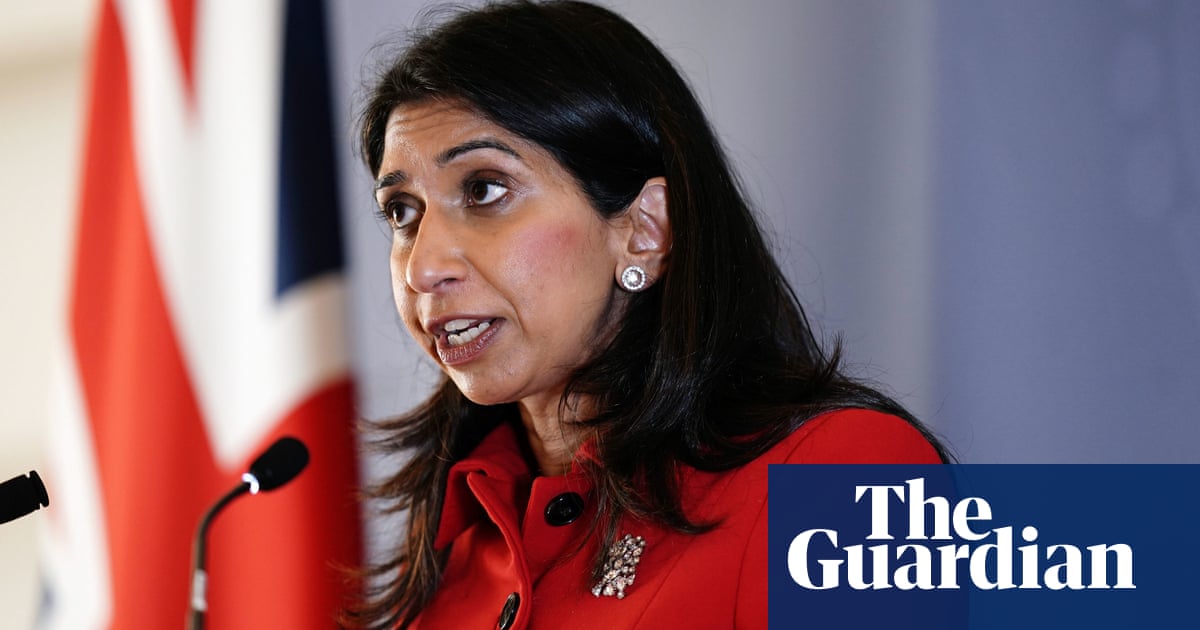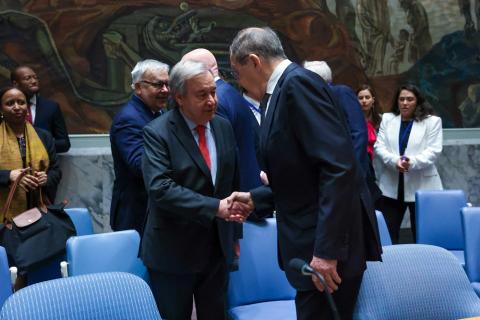
The Global Compact for Safe, Orderly and Regular Migration was finalized at the UN in July after 18 months of talks and is due to be formally adopted at the conference
US disavowed the negotiations late last year, and since then Australia, Austria, the Czech Republic, Dominican Republic, Hungary, Latvia, Poland and Slovakia have pulled out of the process
MARRAKESH, Morocco: Politicians from around the globe will gather Monday in Morocco for a major conference to endorse a United Nations migration pact, despite a string of withdrawals driven by anti-immigrant populism.
The Global Compact for Safe, Orderly and Regular Migration was finalized at the UN in July after 18 months of talks and is due to be formally adopted with the bang of a gavel at the start of the two-day conference in Marrakesh.
The US government disavowed the negotiations late last year, and since then Australia, Austria, the Czech Republic, Dominican Republic, Hungary, Latvia, Poland and Slovakia have pulled out of the process.
The US on Friday took a fresh swipe at the pact, labelling it “an effort by the United Nations to advance global governance at the expense of the sovereign right of states.”
But a host of other nations led by German Chancellor Angela Merkel are in Morocco to endorse the deal and the UN remains upbeat that it can help the world better cope with the hot-button issue.
On the eve of the conference, UN special representative for migration Louise Arbour hit back at the pact’s critics, insisting the document is not legally binding.
“It is surprising that there has been so much misinformation about what the compact is and what the text actually says,” she told reporters in Marrakesh.
“It creates no right to migrate. It places no imposition on states,” she said, adding that 159 member countries are due to attend the conference, including “around 100” represented by heads of state, heads of government or ministers.
But rows over the accord have erupted in several European Union nations, hobbling Belgium’s coalition government and pushing Slovakia’s foreign minister to tender his resignation.
From the United States to Europe and beyond, right-wing leaders have taken increasingly draconian measures to shut out migrants in recent years.
US President Donald Trump has pledged to build a wall on the US-Mexico border and has focused his recent ire on a migrant caravan from Central America, while a populist coalition government in Italy has clamped down on boats rescuing migrants at sea.
Beyond Merkel, among European nations the leaders of Spain, Greece, Denmark and Portugal are set to attend, although French President Emmanuel Macron is sending his secretary of state for foreign affairs as he deals with the “yellow vest” protests at home.
Belgium’s liberal premier Charles Michel won the support of parliament to head to Morocco and back the accord, but he was left leading a minority government on Sunday after the Flemish nationalist party said it will quit his coalition over the pact.
Belgium is among a group of seven nations described by Arbour as still “engaged in further internal deliberations” over the accord, with Bulgaria, Estonia, Italy, Israel, Slovenia and Switzerland also falling into this category.
Billed as the first international document on managing migration, the global pact lays out 23 objectives to open up legal migration and discourage illegal border crossings, as the number of people on the move globally has surged to more than 250 million.
But while welcoming the UN’s attempts to manage migration, activists argue that the pact does not go far enough to secure migrants’ rights.
“Unfortunately, the non-binding nature of the Global Compact on Migration makes its implementation solely based on the goodwill of states supporting it,” Amnesty International’s senior advocate for the Americas, Perseo Quiroz, said in comments emailed to AFP.
After the Marrakesh conference, the UN General Assembly is set to adopt a resolution formally endorsing the deal on Dec. 19.
Topics: United Nations Migration Morocco
Related
67
World
New migration accord recognizes key role of cities
260
World
US takes aim at UN migration pact ahead of conference
Nobel peace prize shines light on rape in conflict
Updated 34 min 13 sec ago
AFP
December 10, 2018 02:54
59
The Norwegian Nobel Committee in October said the prize was for “for their efforts to end the use of sexual violence as a weapon of war and armed conflict”
The laureates have said they hope the Nobel will raise awareness of sexual violence and make it harder for the world to ignore it
OSLO: Congolese doctor Denis Mukwege and Yazidi activist Nadia Murad, a Daesh sex slave survivor, will be presented with the Nobel Peace Prize Monday, as they challenge the world to combat rape as a weapon of war.
Mukwege, dubbed “Doctor Miracle” for his work helping victims of sexual violence, and Murad, who has turned her experience into powerful advocacy for her Yazidi people, will receive the prize at a ceremony in Oslo.
The Norwegian Nobel Committee in October said the prize was for “for their efforts to end the use of sexual violence as a weapon of war and armed conflict.”
The laureates, who have dedicated their award to rape victims across the world, have said they hope the Nobel will raise awareness of sexual violence and make it harder for the world to ignore it.
“We cannot say that we didn’t act because we didn’t know. Now everyone knows. And I think now the international community has a responsibility to act,” Mukwege told reporters at a news conference on Sunday.
The surgeon has spent 20 years treating the wounds and emotional trauma inflicted on women in the DR Congo’s war-torn east.
“What we see during armed conflicts is that women’s bodies become battlefields and this cannot be acceptable,” he said.
Fellow laureate Murad has become a tireless campaigner for the rights of Yazidis since surviving the horrors of captivity under the Daesh group in Iraq and Syria where they targeted her Kurdish-speaking community.
Captured in 2014, she suffered forced marriage, beatings and gang-rape before she was able to escape.
She said the Nobel was “a sign” for the thousands of women still held by militants.
“This prize, one prize cannot remove all the violence and all the attacks on pregnant women, on children, on women and give them justice,” Murad said on Sunday.
But she said she hoped it would “open doors so that we can approach more governments,” to bring the perpetrators to court and “so that we can find a solution and actually stop what is happening.”
The co-laureates have come to represent the struggle against a global scourge that goes well beyond any single conflict.
“Each of them in their own way has helped to give greater visibility to war-time sexual violence, so that the perpetrators can be held accountable for their actions,” said Nobel committee chairwoman Berit Reiss-Andersen, when the award was announced in October.
Mukwege has treated tens of thousands of victims — women, children and even babies just a few months old — at Panzi hospital which he founded in 1999 in DR Congo’s South Kivu.
Murad, now UN ambassador for victims of human trafficking, was among thousands of Yazidi women and girls who were abducted, raped and brutalized by militants during their assault in 2014.
Older women and men faced summary execution during the Daesh assault, which the United Nations has described as a possible genocide. Murad’s mother and six of her brothers were killed.
A UN team authorized to investigate the massacre of the Yazidi minority is due to finally start fieldwork in Iraq next year.
Murad said “steps toward justice” had given her hope.
But she stressed that “not a single Daesh terrorist” has appeared in court, adding “this injustice will continue in this world if it is not dealt with now.”
The Nobel Peace Prize — a gold medal, diploma and nine million Swedish Krona (880,000 euros, $1 million) — will be officially presented in a ceremony at Oslo City Hall at 1200 GMT.
Topics: Nobel Peace Prize
Related
Special 956
Middle-East
‘Let hope unite us,’ Nadia Murad says in UAE in her first appearance as a Nobel laureate
718
Middle-East
Nobel Peace Prize winner Murad urges world to fight genocide
loading...
Latest updates
UN to adopt migration pact at meeting hit by withdrawals
21
Nobel peace prize shines light on rape in conflict
59
Maduro’s grip on Venezuela tightens, warns of Trump threat
32
Mineo arrest hit resurgent Mafia hard, says top policeman
60
Why oil’s ‘big three’ just got bigger: Saudi Arabia, Russia and the US are still calling the shots
434











